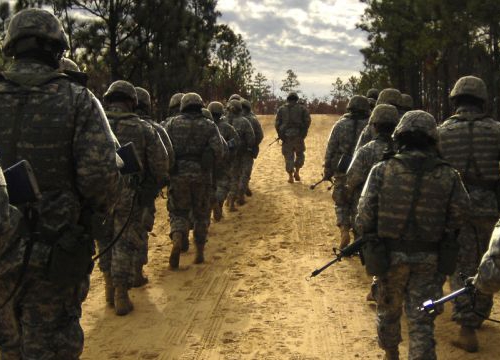Tactical Decision-Making on Lethal Targeting: Legal Challenges and Humanitarian Concerns?
Military Briefings


U.S. Air Force / Sgt. Shawn Weismiller
Soldiers have to make split second decisions about whether to kill or risk their lives to let the situation develop further. These decisions are informed by the soldiers’ knowledge of the laws governing armed conflicts, their rules of engagement, and common sense. For example, establishing whether a civilian is directly participating in hostilities can be a challenging task even when such a decision is being made from the relative safety of an operations centre; on the ground, it can be a question of life or death, not only for the subject but also for the soldiers themselves.
In this first Military Briefing of the academic year, we will examine how such determinations take place in practice and what are the legal and ethical difficulties involved.
Speaker
- Molly Kovite is the Senior Legal Advisor for the International Humanitarian Law Team at the American Red Cross and a Judge Advocate with the US Army Reserves. She holds a BA in Political Science from Columbia University, a MA in International Relations from Dublin City University, and a JD the New York University School of Law. She commissioned into the US Army in 2011. During her active duty service, she deployed twice in Afghanistan, where she provided legal advice to commanders on ongoing operations to ensure compliance with legal requirements and guidelines, including conducting on-the-spot evaluations on air strikes of moving targets. She has written on the notion of direct participation in hostilities at the tactical level as well as gender in the military.
Audience
This Military Briefing is primarily open to Geneva Academy’s students, who will be prioritized in the allocation of seats. External participants are also welcome provided there remains adequate seating.
About Military Briefings
Military Briefings are a unique series of events relating to military institutions and the law. They aim to improve our students’ knowledge of military actors and operations and build bridges between the military and civilian worlds.









